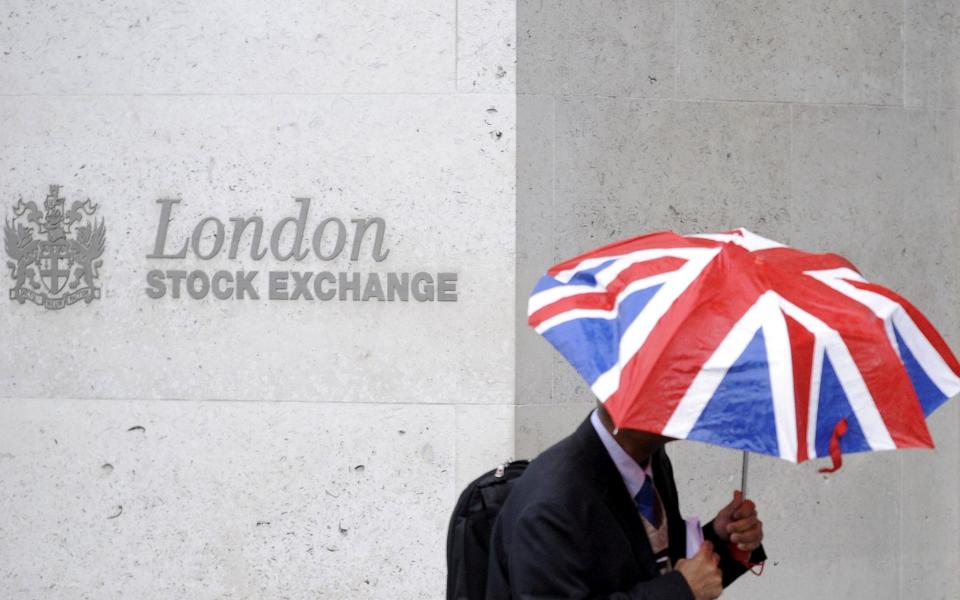‘Britain faces a succession of issues’

It has been a rollercoaster ride for investors in “value” stocks over the past decade. Although these cheap and often unloved shares have been in the doldrums for a large part of this period, things appear to be changing.
Kevin Murphy, who co-manages the Schroder Income fund, believes there is scope for value stocks to deliver significant returns over the next three to five years in view of the large valuation gap that still exists between value and “growth” shares.
He focuses solely on cheap companies that appear to have been misunderstood or excessively punished by investors. It is then a question of waiting for the dark clouds to clear and share prices to rise accordingly.
Over the past 12 months, his £1.2bn fund has returned 5.3pc, against UK equity income rivals’ average loss of 0.5pc. Over three years the fund has gained 18pc, compared with 9.8pc by peers.
How do you pick stocks?
In the stock market, you can either have good news or cheap shares, but you can’t have both. You have to choose one of those things. It is understandable that people want good news, but more than a century of data shows that if you buy cheap companies and are patient, you can make extraordinarily good returns.
We focus exclusively on cheap shares, which means embracing negative headlines. We screen the market for companies that look cheap based on historical profits, sales and assets. Then we try to understand why a company looks cheap, the negative headlines it faces and whether they are temporary or permanent.
If we believe the company looks cheap and the headwinds are temporary, we invest and then we wait. As the headwinds abate, the share price can increase significantly.
Where are the opportunities?
They are in consumer-facing areas, where there is bad news. The British consumer is under extreme pressure from inflation, an economic slowdown, higher interest rates, weak wage growth and the cost of living crisis.
We are not naïve: we understand that this challenging environment may continue for some time.
Why are you investing in this area now?
Simply because the stock market knows the consumer is under pressure and share prices have moved to reflect that.
Some consumer shares are down by two thirds over the past year. Not all of these companies will survive, so we are extremely selective about the ones we invest in. We do detailed work on the balance sheet to ensure the company can endure dark days for some time to come.
But at some point the things holding consumers back will abate. The stock market will move first, so our portfolio needs to be positioned ahead of them.
Which consumer stocks do you hold?
Oil and gas companies, banks and miners have performed well this year, so we have taken profits and rotated into real estate, housebuilders and retailers over the past six months. Most recently we invested in housebuilders Taylor Wimpey and Bellway. They have learnt from the mistakes of the past; coming into this downturn they don’t have any debt and have net cash on the balance sheet.
What do you expect in terms of takeovers?
Britain has had a succession of issues: a complicated political background, Brexit, Covid and now a cost of living crisis. As a consequence, British companies are cheaper than their international competitors. By itself that would make them vulnerable to mergers and acquisitions. Then you add the weakness of the pound into current valuations, which makes them doubly attractive to foreign bidders.
But I would caution against an imminent wave of takeovers because bidders tend to strike when they think they can persuade their own shareholders of the merits of a deal. This often requires a more supportive backdrop than we currently have in the UK.
What has been your best investment?
We bought lots of companies during Covid that have since performed well. We made significant profits in mining shares, such as Anglo American and South32. Each is up by between 60pc and 80pc over the past three years.
And your worst?
Some of the stocks we bought during Covid have yet to see the benefits of a turnaround. Rolls-Royce is a good example. Time will tell if we are right about the potential recovery ahead or whether it is a mistake, but it has so far not delivered. Rolls-Royce’s share price is down by a third since we invested in 2020.

 Yahoo Finance
Yahoo Finance 